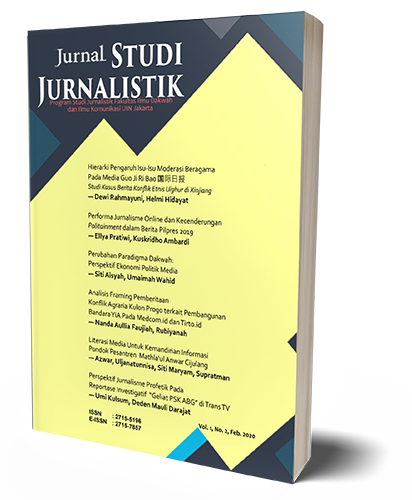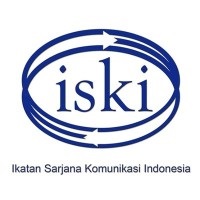Pengembangan Proses Pembelajaran SMK Melalui New Media di Kota Bengkulu
DOI:
https://doi.org/10.15408/jsj.v1i1.21759Keywords:
New Media, Learning Process, Vocational High SchoolAbstract
Education is a very important thing in human life. The progress of a nation is also determined by the progress of its education, the current education system has begun to follow the times, namely by using information technology, or information technology-based education. One of the information technology phenomena today is new media or new media. In the world of education, there is now aukonline education startup called quipper school. Quipper school tries to become the most complete online learning platform in indonesia that can be used not only for students but also for teaching staff.
The only upper secondary education institution that uses quipper school media in the bengkulu city is currently state vocational high school 3. State vocational school 3 bengkulu city is a national standard school with an education system based on skills or skills. Through quipper school media teachers can provide information about lessons directly to groups of students at the same time without having to face to face directly.Thisstudyprovesthattheuseofquipperschoolmediahasasignificanteffectonthedevelopment of learning for students of smk negeri 3 kota bengkulu, then quipper school’s media display is very interesting, making students interested in using quipper school media in helping the learning process.
References
Abidin,Yusuf. 2009. Guru dan Pembelajaran Bermutu. Rifki : Bandung.
Bungin, Burhan. 2008. Metode Penelitian Kuantitatif. Gramedia : Jakarta.
Effendy, Onong Uchjana. 2000. Ilmu, Teori dan Filsafat Komunikasi. PT. Citra Aditya Bekasi : Bandung.
Effendy, Onong Uchjana. 2005. Ilmu Komunikasi : Teori dan Praktek, Cetakan Kesembilanbelas, Remadja Rosdakarya : Bandung.
Firmansyah, Aditya. 2010. Situs Jejaring Sosial Menggunakan Elgg. Makalah tidak diterbitkan. Sekolah Teknik Elektrodan Informatika. ITB: Bandung.
Heath, Robert L dan Jannings Bryant. 2000. Human Communication Theory and Research, Con-cepts, Contexts, and Challenges. Mahwah, New Jersey – London: Lawrence Erlbaum As- sociate Publisher.
Kriyantono, Rachmat. 2008. Teknik Praktis Riset Komunikasi. Jakarta.
Mulyana, Deddy. 2007. Ilmu Komunikasi Sebuah Pengantar Edisi Revisi. PT. Remaja Rosdakarya: Bandung.
Rakhmat, Jalaludin. 2002. Metode Penelitian Komunikasi. PT. Remaja Rosdakarya : Bandung.
Rahmat, Jalaluddin, 2005. Psikologi Komunikasi. PT . Remaja Rosdakarya : Bandung.
Severin,W.,J.,Tankard,J. 2008.TeoriKomunikasi: Sejarah,Metode,danTerapandiDalamMedia Massa. Penerbit Kencana Prenada Media Group : Jakarta.
Sugiyono. 2011. Metode Penelitian Pendekatan Kuantitatif, Kualitatif dan R&D. Alfabeta : Bandung.
Suryabrata, S. 2003. Metodologi Penelitian. Jakarta: CV Rajawali.
Thoifah, I’anatut. 2015. Statistika Pendidikan dan Metode Penelitian Kuantitatif. Madani Media: Malang.















